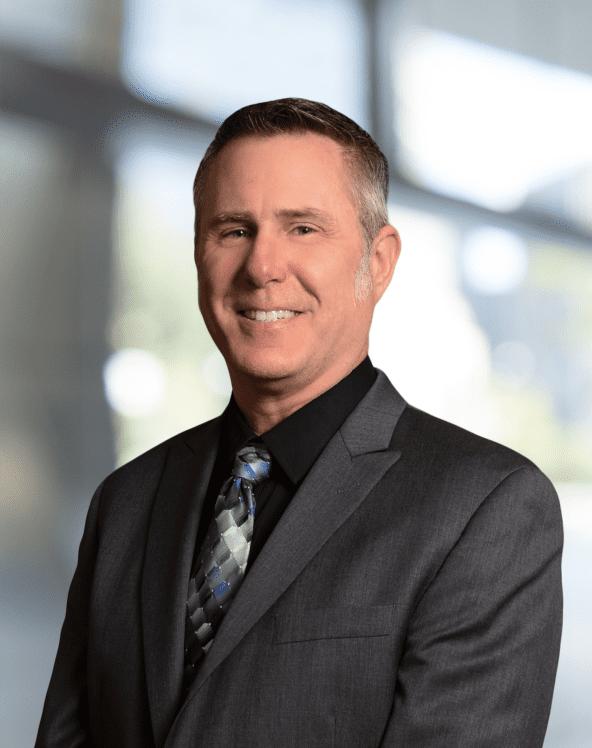
Michael Gonshor, PG, LSRP
Principal Hydrogeologist



EXPERTISE
Soil and Groundwater Investigation and Remediation Projects
Fractured and Karst Bedrock Investigations
Fate and Transport Analytical and Numerical Modeling
Development of Site-specific Soil Standards
Monitored Natural Attenuation Evaluations
Design and Analysis of Aquifer Pumping Tests
EDUCATION
BS, Earth Sciences, Specializing in Geosciences - Penn State University
Michael Gonshor, PG, LSRP
Principal Hydrogeologist
Michael Gonshor is a Principal Hydrogeologist at Roux with over thirty-five years of experience in the environmental consulting industry. Mr. Gonshor holds a Bachelor of Science degree in Earth Sciences with a specialization in Geosciences from Penn State and is a Licensed Site Remediation Professional (LSRP) in New Jersey and a Licensed Professional Geologist (PG) in Pennsylvania, Delaware, Virginia, North Carolina, South Carolina, and Georgia. Mr. Gonshor has conducted numerous investigation and remediation projects for industrial, brownfields redevelopment, and petroleum sites as an LSRP in New Jersey and as a Principal Hydrogeologist and P.G. in Pennsylvania, South Carolina, and other states. Mr. Gonshor has extensive experience at sites involving chlorinated solvents, petroleum constituents, metals, and semi-volatile organic compounds (SVOCS) in soil and in groundwater, in fractured bedrock, and unconsolidated formations. Mr. Gonshor also has extensive experience in conducting fate and transport evaluations using analytical and numerical models. Mr. Gonshor served on the New Jersey Department of Environmental Protection’s (NJDEP) Impact to Groundwater Committee with NJDEP personnel and other stakeholders to update, expand, and revise guidance documents for determination of site-specific impact to groundwater standards.
- Principal Hydrogeologist/LSRP for a large Industrial Site Recovery Act (ISRA)/Brownfields redevelopment project in Sayreville, New Jersey. This Site, comprising 440 acres, is one of the largest Brownfields projects in the State of New Jersey. Work includes overall project direction of investigation, remedial action, and ecological evaluation activities across multiple parcels and multiple areas of concern. To date, work on this project included completion of several soil remedial actions including in situ soil stabilization, excavations, and capping. Groundwater remedial action includes in situ injections of calcium and magnesium hydroxide to raise pH and reduce dissolved metals concentrations. An ecological investigation and risk assessment was implemented which demonstrated no adverse ecological risk existed, eliminating the need for ecological remediation activities.
- Principal Hydrogeologist/P.G. for an Act 2 soil and groundwater investigation at a 388-acre former limestone quarry in southeastern Pennsylvania. This project involved an extensive review and evaluation of existing soil and groundwater data, regional geologic and hydrogeologic data, and implementation of soil and groundwater investigative activities. A major complexity to this project was that the groundwater, which occurs within the fractured and karstic limestone bedrock, is known to be regionally impacted with chlorinated VOCs from multiple sites. This regional impact, in conjunction with the complex nature of groundwater flow within limestone bedrock, presented a challenge to thoroughly understanding regional flow and transport of chlorinated VOCs. Among other investigation methods, Roux designed and evaluated Electrical Resistivity Imaging (ERI) surveys which successfully identified water-bearing faults and fractures to target for bedrock well installation, substantially reducing project costs and completion timeframe. The Pennsylvania Department of Environmental Protection (PADEP) approved releases of liability for soil and groundwater. The Site was successfully redeveloped with multiple large office buildings and multi-family townhouses and condominiums.
- Principal Hydrogeologist/P.G. for an Act 2 soil and groundwater investigation and remediation project at a former metal fabricating facility in southeastern Pennsylvania involving TCE in soil and groundwater. Affected groundwater occurred in overburden and underlying fractured bedrock. Chemical oxidation was identified as the cost-effective approach to remediate the source area within the short project schedule required by the client. The in situ chemical oxidation successfully reduced TCE concentrations from over 40,000 µg/l in the source area to non-detect in one injection event. Six months after remediation, concentration rebound was minimal, rebounding to under 50 µg/l in the source area. Natural attenuation was accepted by the PADEP to address residual impacts in groundwater. The PADEP approved a Release of Liability for site soil and groundwater.
- Principal Hydrogeologist/LSRP for multiple dry cleaner sites in New Jersey. These projects involved soil, groundwater, and vapor intrusion investigations; development of site-specific impact to groundwater standards; and installation and operation of vapor intrusion mitigation systems. Synthetic Precipitation Leaching Procedure (SPLP) testing and SESOIL (a seasonal compartment model) modeling was used to develop site-specific impact to groundwater standards, which resulted in substantially reduced project costs and, in some cases, eliminated the need for soil remediation. Remedial activities included soil excavation, in situ chemical oxidation, and monitored natural attenuation (MNA) for groundwater.
- Principal Hydrogeologist/LSRP for an ISRA closure/Brownfields redevelopment of a former paper manufacturing facility in northern New Jersey. Project work included conducting preliminary assessment, site investigation, remedial investigation, and remedial action activities associated with multiple areas of contamination (AOCs) related to the industrial operations. Project work also included a background evaluation associated with naturally occurring metals in soil and groundwater, and impacts from upgradient sites to site groundwater, which successfully demonstrated that groundwater impacts beneath the site were not due to former site operations. An unconditional Response Action Outcome (RAO) was issued for the Site in 2013. Site redevelopment as a retail shopping center was completed in 2015.
- Principal Hydrogeologist/P.G. for a RCRA corrective action at a metal finishing and manufacturing facility in South Carolina. Investigation and remediation activities were conducted for multiple Solid Waste Management Units (SWMUs). Both the United States Environmental Protection Agency (USEPA) Region IV and the South Carolina Department of Health and Environmental Control (SCDHEC) direct the RCRA program for this Site. Key activities included groundwater delineation and source area investigation activities; development and implementation of Interim Corrective Measures (ICMs); and design, implementation, performance monitoring of the groundwater extraction system; and multiple zero valent iron (ZVI) passive reactive barrier (PRB) groundwater remedial measures to address chlorinated volatile organic compounds. Based on the proven effectiveness of the ZVI system, the SCDHEC approved the shutdown of the groundwater extraction system in 2018.